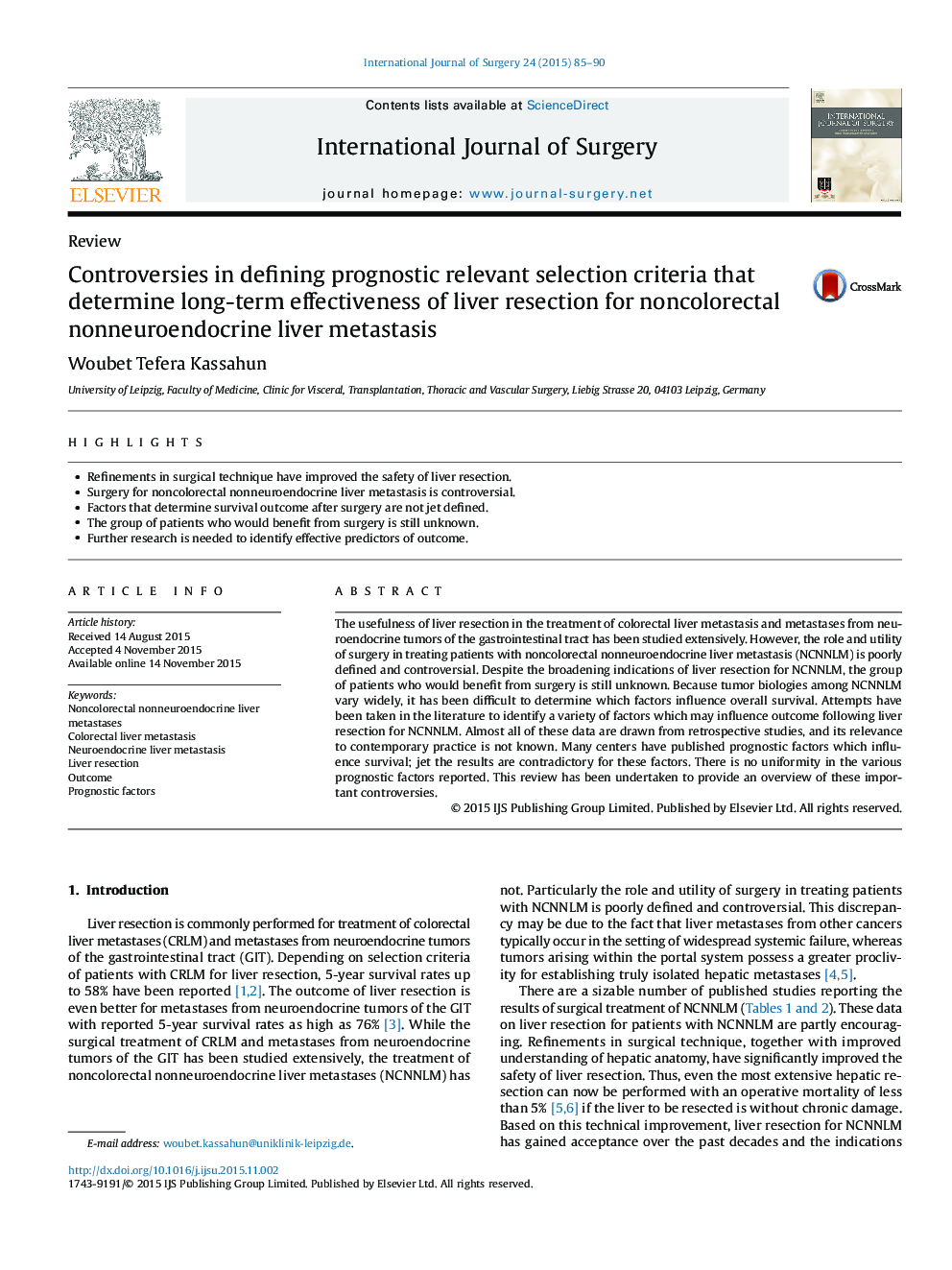| Article ID | Journal | Published Year | Pages | File Type |
|---|---|---|---|---|
| 4285789 | International Journal of Surgery | 2015 | 6 Pages |
•Refinements in surgical technique have improved the safety of liver resection.•Surgery for noncolorectal nonneuroendocrine liver metastasis is controversial.•Factors that determine survival outcome after surgery are not jet defined.•The group of patients who would benefit from surgery is still unknown.•Further research is needed to identify effective predictors of outcome.
The usefulness of liver resection in the treatment of colorectal liver metastasis and metastases from neuroendocrine tumors of the gastrointestinal tract has been studied extensively. However, the role and utility of surgery in treating patients with noncolorectal nonneuroendocrine liver metastasis (NCNNLM) is poorly defined and controversial. Despite the broadening indications of liver resection for NCNNLM, the group of patients who would benefit from surgery is still unknown. Because tumor biologies among NCNNLM vary widely, it has been difficult to determine which factors influence overall survival. Attempts have been taken in the literature to identify a variety of factors which may influence outcome following liver resection for NCNNLM. Almost all of these data are drawn from retrospective studies, and its relevance to contemporary practice is not known. Many centers have published prognostic factors which influence survival; jet the results are contradictory for these factors. There is no uniformity in the various prognostic factors reported. This review has been undertaken to provide an overview of these important controversies.
